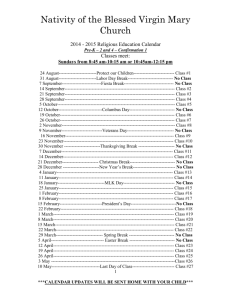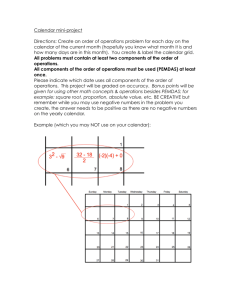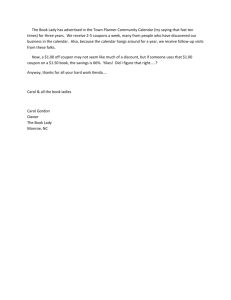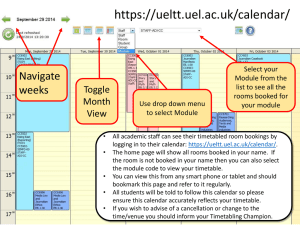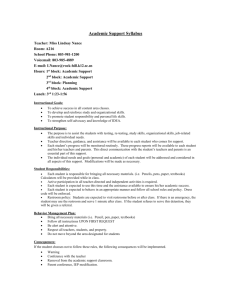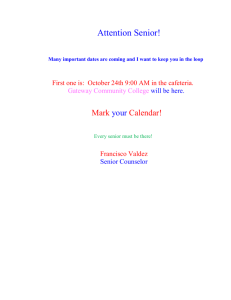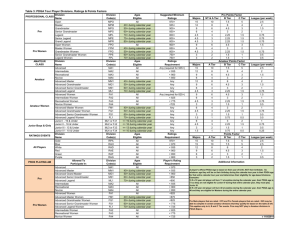ScopeandSequence
advertisement
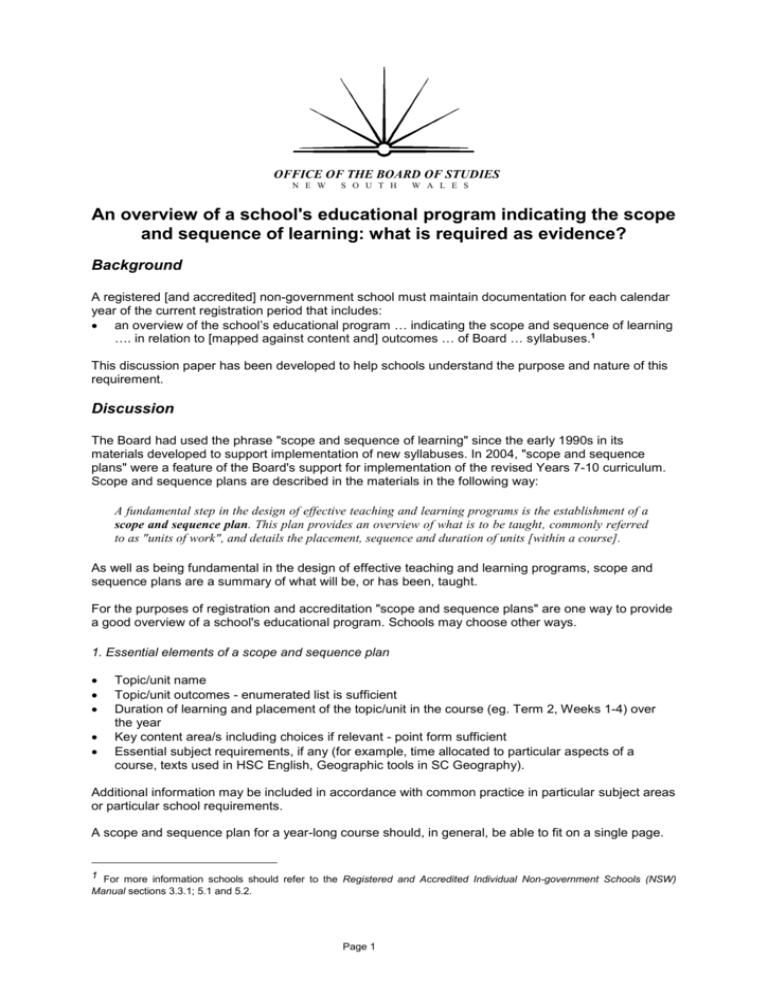
OFFICE OF THE BOARD OF STUDIES N E W S O U T H W A L E S An overview of a school's educational program indicating the scope and sequence of learning: what is required as evidence? Background A registered [and accredited] non-government school must maintain documentation for each calendar year of the current registration period that includes: an overview of the school’s educational program … indicating the scope and sequence of learning …. in relation to [mapped against content and] outcomes … of Board … syllabuses.1 This discussion paper has been developed to help schools understand the purpose and nature of this requirement. Discussion The Board had used the phrase "scope and sequence of learning" since the early 1990s in its materials developed to support implementation of new syllabuses. In 2004, "scope and sequence plans" were a feature of the Board's support for implementation of the revised Years 7-10 curriculum. Scope and sequence plans are described in the materials in the following way: A fundamental step in the design of effective teaching and learning programs is the establishment of a scope and sequence plan. This plan provides an overview of what is to be taught, commonly referred to as "units of work", and details the placement, sequence and duration of units [within a course]. As well as being fundamental in the design of effective teaching and learning programs, scope and sequence plans are a summary of what will be, or has been, taught. For the purposes of registration and accreditation "scope and sequence plans" are one way to provide a good overview of a school's educational program. Schools may choose other ways. 1. Essential elements of a scope and sequence plan Topic/unit name Topic/unit outcomes - enumerated list is sufficient Duration of learning and placement of the topic/unit in the course (eg. Term 2, Weeks 1-4) over the year Key content area/s including choices if relevant - point form sufficient Essential subject requirements, if any (for example, time allocated to particular aspects of a course, texts used in HSC English, Geographic tools in SC Geography). Additional information may be included in accordance with common practice in particular subject areas or particular school requirements. A scope and sequence plan for a year-long course should, in general, be able to fit on a single page. 1 For more information schools should refer to the Registered and Accredited Individual Non-government Schools (NSW) Manual sections 3.3.1; 5.1 and 5.2. Page 1 The overview of a school's educational program also is to include resources and equipment used in each course and plans to assess and report the achievements of students. Most schools, as a matter of course, have this information in other documents. It is not necessary to include this type of information in scope and sequence plans. 2. Variations in the format of scope and sequence plans The variability in scope and sequence plans in the Board's support materials arise in the main from differences in course structures and requirements. In providing support materials the Board is giving guidance to teachers and not being definitive about how schools program the learning of students nor how the achievements of students are assessed. The format of scope and sequence plans is a matter for each school to determine. 3. Submitting and retaining an overview of the educational program Submitting: At the time of application for renewal of registration and/or accreditation the Board requires only an overview of a school's educational program, not a school's entire documentation of its educational program. Scope and sequence plans are a good way to provide an overview. Retaining: To meet the requirement to maintain, for each calendar year of the current registration period, documentation of the overview of the educational program, scope and sequence plans are sufficient. Of course, schools choosing to retain, for their own purposes, entire teaching programs (perhaps electronically) are meeting this requirement. 4. When does a school need to provide its entire teaching program and samples of student work? These materials are required to be maintained for each calendar year, until the end of that calendar year. These documents are required to be available during an inspection of a school. Page 2


